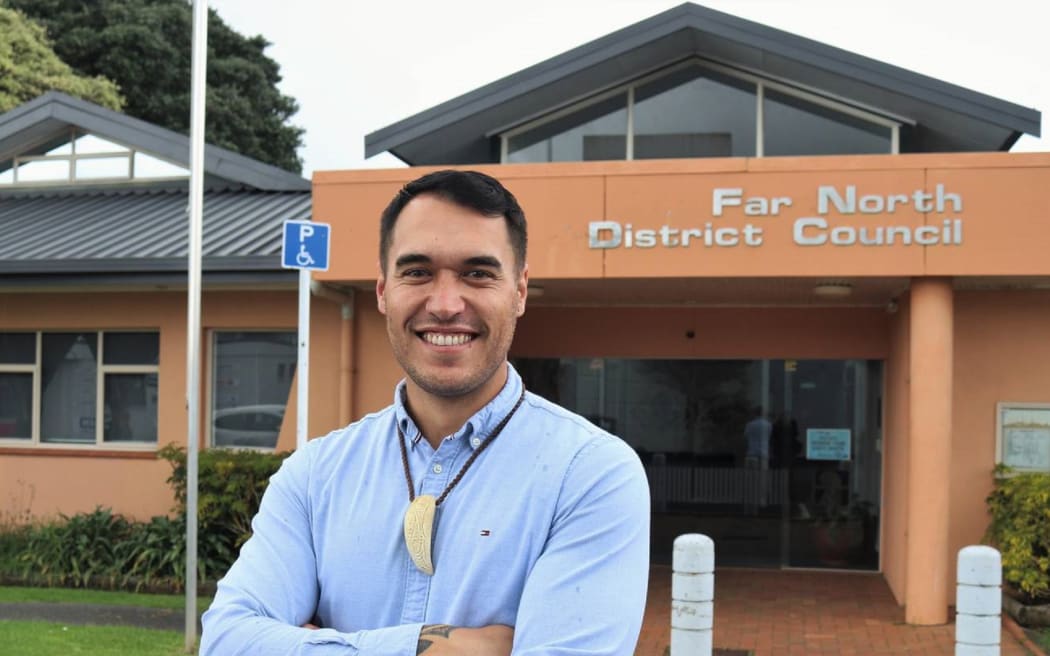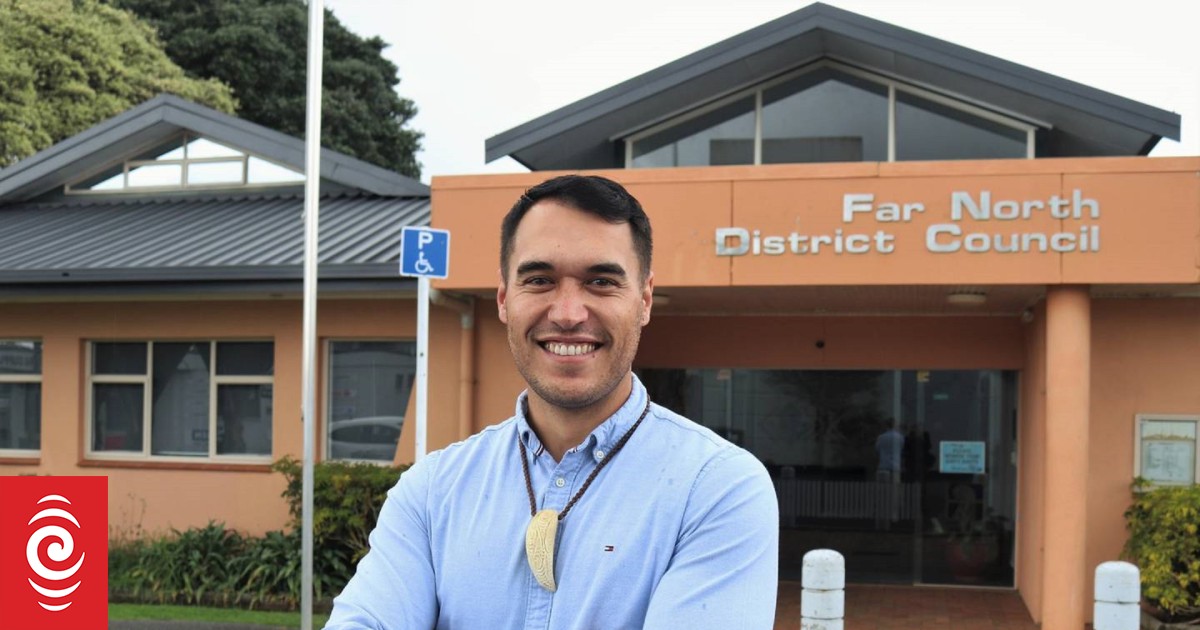
Far North kahika (mayor) Moko Tepania says feedback from residents was that the original proposal of a 16.5 percent rates rise was unaffordable.
Photo: RNZ / Peter de Graaf
The Far North District Council has slashed its expected rates increase for the upcoming 2024-25 year from almost 17 percent to just over 5 percent.
Kahika (Mayor) Moko Tepania said the reduction was achieved by councillors and staff trawling through budgets line-by-line to find $8.5 million in savings – and demanding a one-off, $5m dividend from the council’s commercial arm, Far North Holdings.
He said the cost savings came from pushing capital projects out to future years, and cutting day-to-day operating expenses ranging from consultants’ fees to councillors’ lunches.
The revised, back-to-basics Long-Term Plan, with a focus on core infrastructure and a 5.1 percent overall rates increase instead of the previously mooted 16.5 percent, was debated at an extraordinary council meeting in Kaikohe on Thursday.
It still needed councillors’ final approval on 26 June.
Tepania said feedback from residents about the original proposal was that the almost 17 percent increase was far too high.
“I know that in this economic climate no increase is welcome, but I’m happy that the cost savings we have found mean our total rates increase will be less than the rate of inflation.”
He cautioned however, that 5.1 percent was an average figure, and the increase for individual ratepayers would vary according to property type and connection to council services such as water and wastewater.
The projected rates increases for 2025-26 and 2026-27 were 11.4 percent and 7.2 percent, respectively.
Tepania said his council was one of eight around the country allowed to produce a Long-Term Plan covering just three years instead of the usual 10, due to the extra burden of repairing damage caused by major storms in 2022 and early 2023.
He said the initial proposal for a 16.5 percent total rates increase was on par with those planned by other councils around Aotearoa.
All councils were grappling with spiralling inflation, increased insurance and contractor costs, and soaring infrastructure bills.
Regarding the $5m special dividend request put to Far North Holdings, Tepania said the council had created the company to make money and offset rates.
“I’m very excited to make this request. This will hugely alleviate the rates increase and burden for our ratepayers for the upcoming financial year. A dividend of that size is only possible because our commercial arm has proved it can make savvy investment decisions that benefit the local economy and ratepayers.”
Far North Holdings has been contacted for comment.
The agenda for Thursday’s meeting stated the dividend payment would require a capital restructure of the council’s commercial arm, but it was not clear what that entailed.
Another significant decision made at Thursday’s meeting was around a proposal to switch to a district-wide rating system for wastewater costs.
Currently ratepayers in each town across the Far North pay for their own sewage plants through targeted rates.
That means property owners in small towns with few ratepayers to share the cost (such as Hihi or Rāwene) or towns that have recently spent large sums upgrading their wastewater plants (such as Kerikeri) pay significantly higher rates than towns with bigger populations or long-established sewage plants (such as Kaikohe and Kaitāia).
District-wide rating would have seen all ratepayers connected to council wastewater systems pay the same amount, protecting residents of the smallest towns from shock increases when infrastructure needs to be renewed – but leading to rates increases in other areas.
That proposal was lost so the town-by-town wastewater funding model will continue.
Northland’s other district councils, Whangārei and Kaipara, are proposing overall rates increases for 2024-25 of 17.2 and 18.3 percent, respectively.
Far North property owners who want to know how much they will pay under the revised plan can enter their address into the council’s online rating information database after 14 June.




